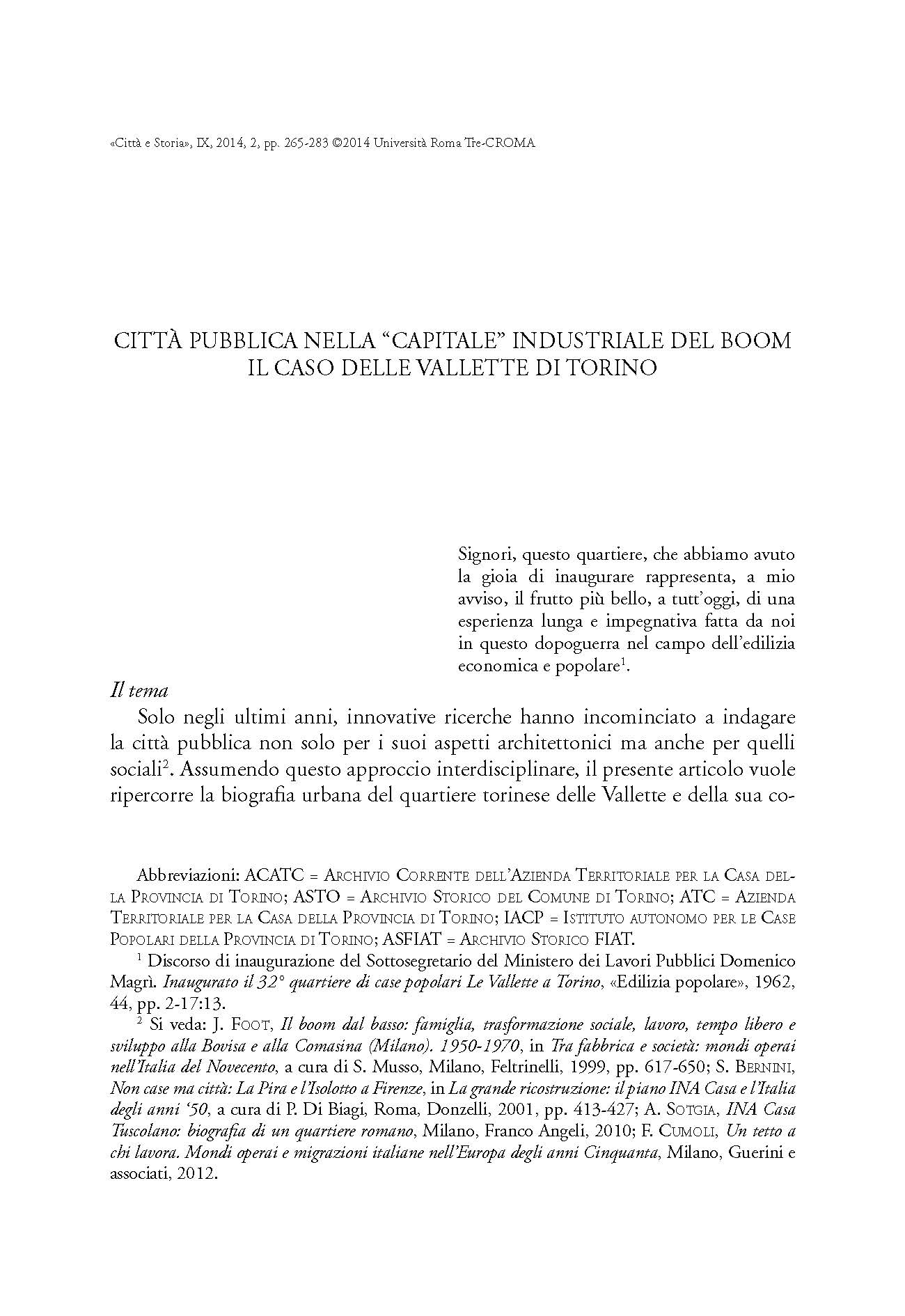Città pubblica nella “capitale” industriale del boom: il caso delle Vallette di Torino
6,00 €
The article analyses the “urban biography” of Vallette, a council estate in Turin. Through archival resources and a collection of oral interviews, the building project and how this is related to the developmental process of the whole city has been examined. Particular attention has been paid to the analysis of the social aspects of the project and the listing of participating agencies with their own housing criteria, administrative, and property selling strategies. Despite the long standing stigma of the “ghetto”, the Vallette community is characterised by a certain social diversity. Further more, we have studied the contradictory feedback from tenants regarding the new living habits promoted by the authorities. The key argument underlying this research is the rise of the privatised nuclear family model and a new-found respectability of middle-class traits amongst the working classes based on new values such as privacy and domestic consumerism during Italy’s Post-war Boom.
The article analyses the “urban biography” of Vallette, a council estate in Turin. Through archival resources and a collection of oral interviews, the building project and how this is related to the developmental process of the whole city has been examined. Particular attention has been paid to the analysis of the social aspects of the project and the listing of participating agencies with their own housing criteria, administrative, and property selling strategies. Despite the long standing stigma of the “ghetto”, the Vallette community is characterised by a certain social diversity. Further more, we have studied the contradictory feedback from tenants regarding the new living habits promoted by the authorities. The key argument underlying this research is the rise of the privatised nuclear family model and a new-found respectability of middle-class traits amongst the working classes based on new values such as privacy and domestic consumerism during Italy’s Post-war Boom.

